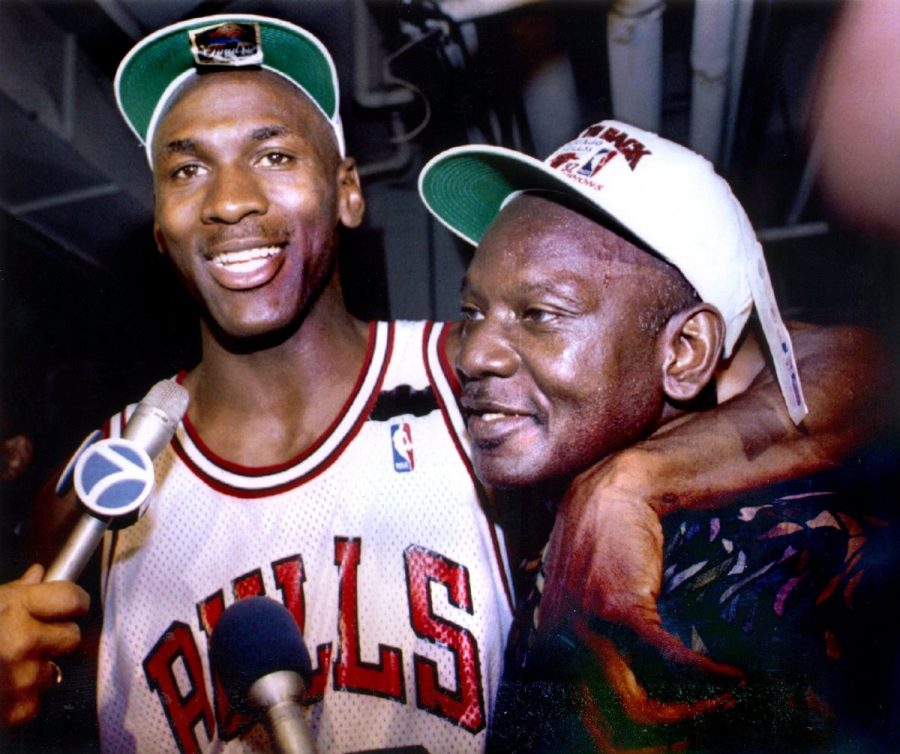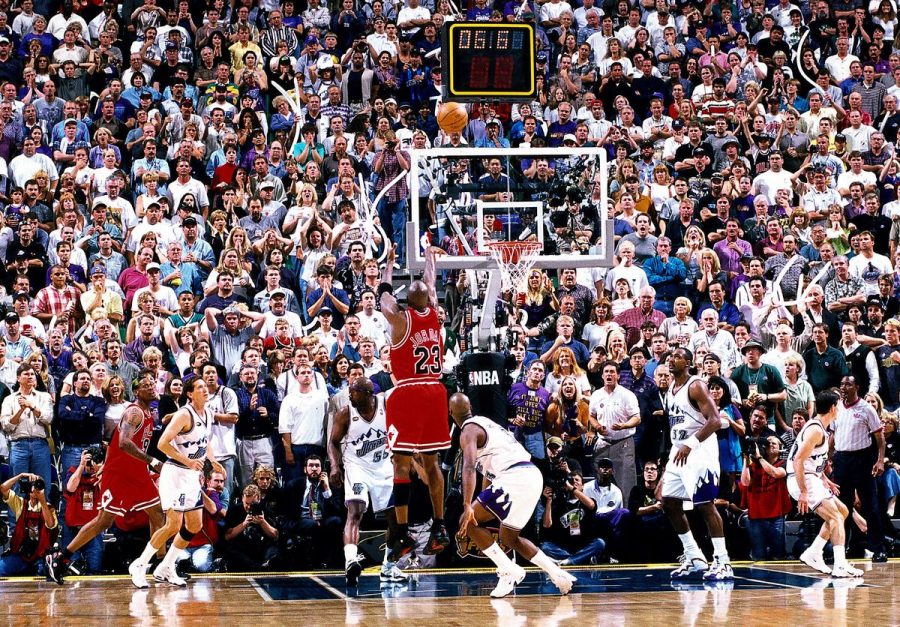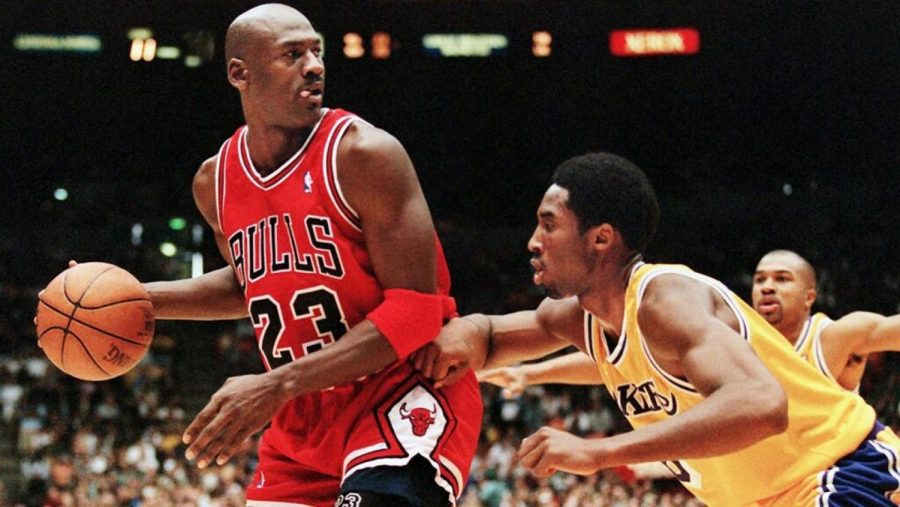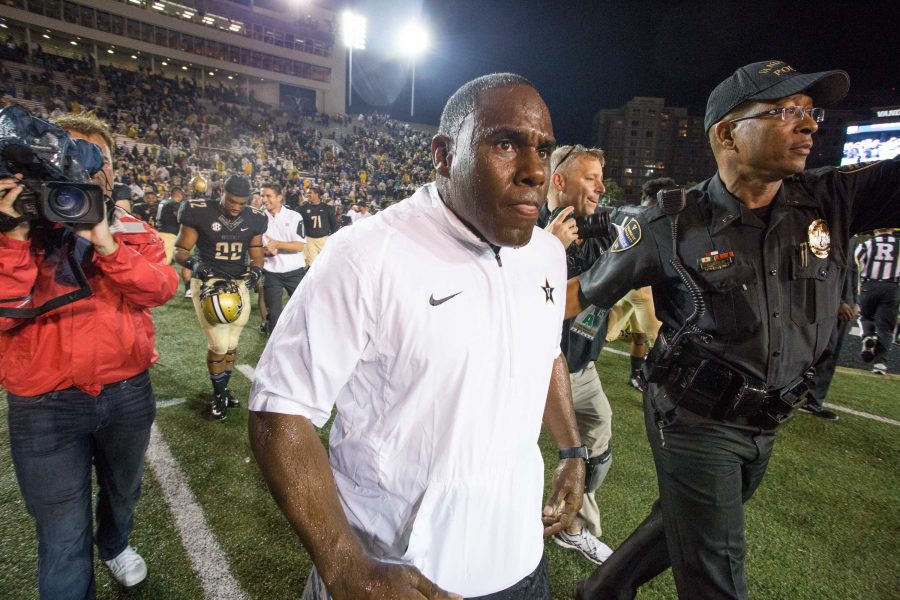In its penultimate night, “The Last Dance” brought the allure and amazement of basketball legend Michael Jordan to full display yet again in episodes seven and eight. Sunday’s installments looked into the aftermath of the tragic murder of Jordan’s father, James, Michael’s subsequent retirement from basketball and, finally, the Bulls’ first two playoff series of the 1998 NBA playoffs.
For many, the two episodes served as the most memorable of the season as viewers got an up-close glance at some of the raw emotions of the usually reserved superstar.
A Father’s Lasting Influence
The biggest takeaway from the pair of episodes was the immense impact that James Jordan had on his son. In all of Michael’s biggest moments, his father was always right next to him, smiling ear-to-ear.
It is no surprise then that when James was murdered on July 23, 1993, Michael’s world was turned upside-down. In a shocking turn of events, Jordan retired from basketball on October 6 of the same year and joined the Chicago White Sox’s Double-A affiliate team four months later. The documentary revealed that Jordan and his father had discussed Michael’s dream to start a baseball career in their final conversation together and James was fully on board.
Jordan’s baseball career is largely thought of as a failure, but the documentary showcased his potential in the sport. Multiple people, including Michael’s manager and current Cleveland Indians manager, Terry Francona, expressed their confidence that with more time Jordan would have made it to the major leagues, illustrating the insane athleticism, talent and hard work that defined Michael Jordan.
Jordan’s baseball career gave him a break from the pressure of being the best basketball player in the world. Moreover, the stint taught him how to live without the presence of his father. Jordan was used to having his father alongside him for every step of his journey. For example, when the media drama surrounding his gambling habits became a major story, he directed all questions to James. So as expected, Jordan needed some time to adjust to life without his biggest advisor and confidant. There was no better place to do this than with a minor league baseball team where Jordan was allowed to feel like a carefree kid again.
Of course, the allure of basketball became too much for Jordan, and on March 18, 1995, he announced he was returning to the Chicago Bulls with a simple press release.
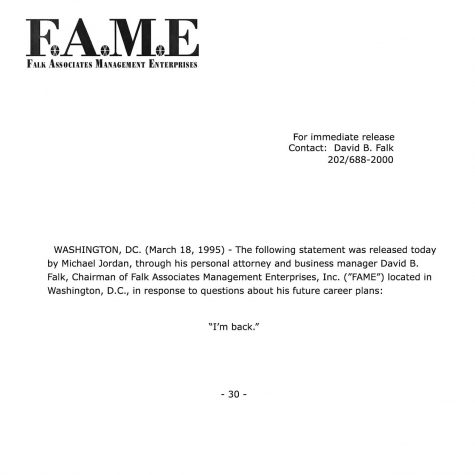
The story came full circle in 1996 when the Chicago Bulls avenged their early playoff exit in 1995 by defeating the Seattle SuperSonics. The series marked the dynasty’s fourth NBA championship—only this time, the win came on Father’s Day of 1996. The eighth episode winds down with Jordan on the floor, sobbing uncontrollably as he is overcome with the emotions of winning his first championship without his father by his side. The scene is heartbreaking but illustrates the lasting influence that James Jordan had on his son. The documentary makes it clear: Michael Jordan would not have lived to become the legend that he is today without his father.
The Bad Cop
Shortly before the first episode of “The Last Dance” premiered, it was revealed that Jordan told director Jason Hehir that people will think “he’s a horrible guy” after watching the documentary. Through the first six episodes, the harsher side of Jordan didn’t make much of an appearance. In these episodes, however, viewers get their first real glimpse of what Jordan was referencing.
Old video footage featured in the documentary shows Jordan mercilessly going after forward Scott Burrell in hopes of toughening him up for the Bulls’ future playoff opponents. Vanderbilt alumnus and former Chicago Bull Will Perdue said Jordan “crossed the lines numerous times” as a teammate. His comments were echoed by forward Jud Buechler, who flat-out said that Bulls players were afraid of Jordan.
Jordan does not shy away from this criticism. His treatment of teammates has long been one of the biggest marks against him as a player, but he does not try to change that perception. Jordan acknowledges that he was extremely hard on his teammates, but he doubles down on his belief that it was the best way for him to be a leader and to get the most out of his guys. He delivers one of the most memorable quotes from the series: “Winning has a price.” And it’s true.
Jordan’s six championships and legacy as the greatest basketball player of all time came at the cost of several relationships along the way. His in-your-face leadership style rubbed more than a few people the wrong way and definitely was not for everyone. In today’s era of basketball, these types of incidents would be dissected and condemned by social media. There is no way Jordan would be able to keep this same leadership style. The fact of the matter is, however, that Jordan was the superstar that he was because of this pressing approach. He demanded the best out of his teammates only because he demanded perfection out of himself and that is what made him and the Bulls so iconic.
A Killer Mentality
Another major takeaway from Sunday’s installments was the sheer willpower that Jordan possessed. It seems that basically everything he said he was going to accomplish, he did. The key to this willpower appears to be his unique mental approach. Jordan’s killer mentality is widely discussed, but it was on full display in these episodes. The documentary showed various cases where Jordan would turn any perceived slight into a full-fledged war in his mind. Spoiler alert: Jordan wins every single one of these wars by a landslide.
Former Bulls guard B.J. Armstrong, whom Jordan faced in the 1998 playoffs when Armstrong was a member of the Charlotte Hornets, had a front-row seat to one of these battles. Armstrong got hot late in Game 2 and ultimately hit a game-winning shot, allegedly staring and shouting at Jordan and the Bulls bench in the process. Jordan did not take too kindly to that and proceeded to smother Armstrong on defense for the rest of the series. Unsurprisingly, Chicago won the series 4-1.
Seattle SuperSonics coach George Karl ignored Jordan at a restaurant in Seattle before the 1996 NBA Finals began. Jordan was irritated at being ignored by a man he had a preexisting relationship with, so he decided to use it as extra motivation. Of course, Jordan and the Bulls won that championship as well.
Most astonishingly and humorously, however, was the situation with LaBradford Smith of the Washington Bullets. In a regular-season game in March 1993, Smith dropped 37 points in an easy Bullets victory. Jordan said that Smith put his arm around him and told him “nice game” as the two were headed off the court. The two teams were slated to meet again in the next game and Jordan privately declared that he was going to have what Smith had in the game (37 points) in one half. To no one’s surprise, Jordan poured in 36 first-half points en route to a dominating Bulls win. The best part of the story, however, is the fact that Jordan later revealed that Smith said no such thing to him. He made the whole thing up to form some sort of rivalry which, in turn, gave him an extra edge in the game.
Great players are always talented athletes, but superstars become superstars because of the mental aspect of the game. Jordan’s mental prowess is on a whole other level as demonstrated in Sunday’s episodes and it is because of his killer mentality that he is largely recognized as the greatest to ever do it. This edge is only found in a select few other athletes and it allowed Jordan to not only defeat, but absolutely obliterate his competition. Without this edge, Jordan and the Bulls might have still found the same amount of success in terms of championships, but the dominating fashion in which they played would not have been there. These episodes showed that if he found even the tiniest sliver of a reason to want revenge against you, it was over. Jordan was able to find fragments of extra motivation in the most minuscule of things and that, combined with his insane amount of skill, is what made him such a cold-blooded assassin on the court.
The final two episodes of the ten-part documentary air on May 17 at 9 pm EST on ESPN and will focus on the 1998 Eastern Conference Finals against the Indiana Pacers and the NBA Finals against the Utah Jazz.












